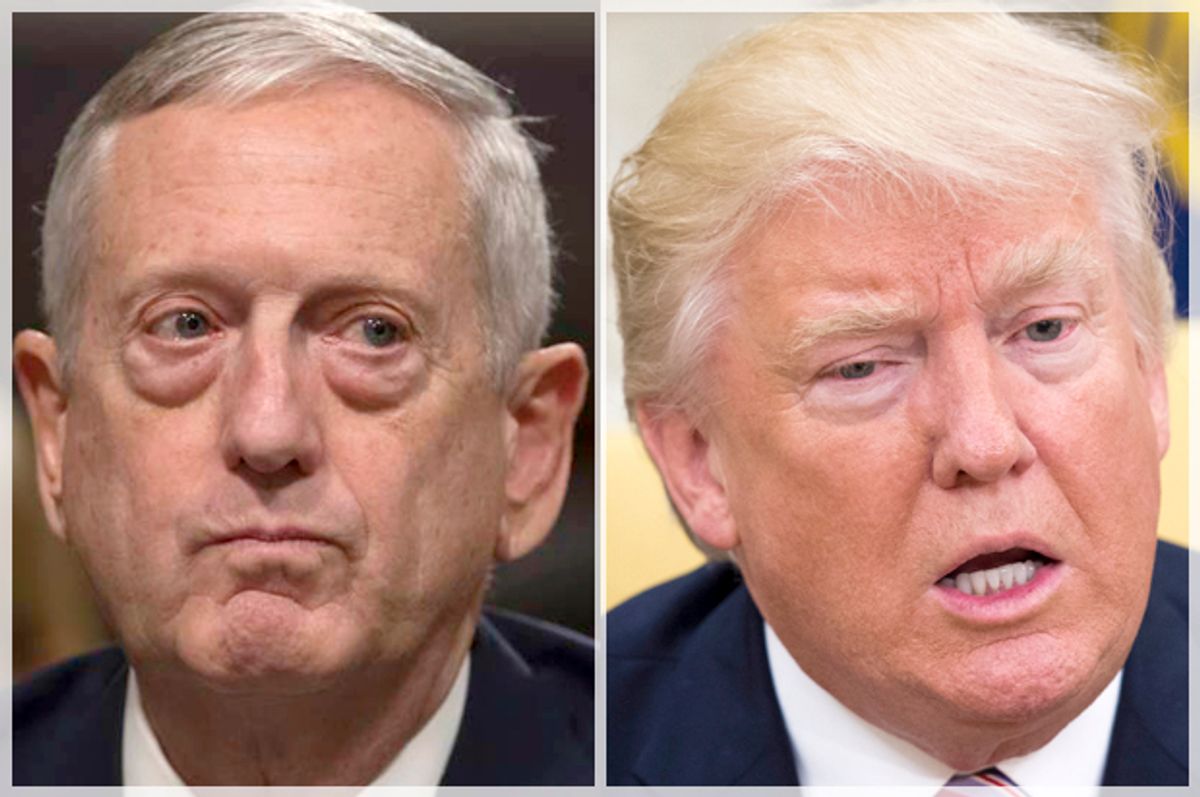One of the many bromides of American discourse, repeated without two seconds of forethought, is that the United States has “the greatest military in the world.” The only nuance permissible in reaction to bipartisan chest pounding is to widen the endorsement: “America has the greatest military in the history of the world.”
The historical inconvenience of America’s losing record never gives pause to even the most deliberate Pentagon booster. Not since World War II has the United States “won” a major war.
The best literature of war offers the profound realism of war’s universal defeat. "A Farewell to Arms," "The Things They Carried," and even a novel that President Trump, voracious reader that he is, cites as a favorite, "All Quiet on the Western Front," share an artistic indictment of war as a menace to all its participants. No one wins, but one side, perhaps, loses with slightly less physical devastation.
It has become impossible to function in American life without enduring constant reminders of supposed U.S. military supremacy, complete with idolatrous adulation for its members and veterans. Polls consistently demonstrate that Americans have lost respect for all major public institutions with the notable exception of the military. Combine widespread political illiteracy with America’s bottomless appetite for violence and the country hangs over the edge of a militaristic nightmare.
President Trump, who has boasted of being the “most militaristic person,” recently announced that he is delegating decision making powers affecting troop levels in Syria, Iraq and Afghanistan to military generals and the Department of Defense. Secretary of Defense James Mattis has already displayed great gusto for overseas adventures and explosions, explaining that he will send an additional 4,000 troops to Afghanistan, where the U.S. has fought with no clear objective for 16 years.
Mattis should not even have his job, considering that U.S. law prohibits anyone who has held a military position within seven years from accepting an appointment as Secretary of Defense. With typical obsequiousness to the armed forces, the Senate overwhelming voted to grant the waiver. Most significant among those who did not was Senator Kirsten Gillibrand, a consistently courageous opponent of creeping militarism.
Trump’s violation of one his most important responsibilities as president — civilian control over the military — elicited a collective yawn from the blasé media, and drew mostly pathetic silence from the meek and myopic Democratic Party too obsessed with Trump’s lingering scandals and too cowardly to comment on how the president has placed the most lethal of his powers into the armament of an unelected official. The entire nation has become a kept man, beholden to the interests of the “military-industrial complex” that Eisenhower feared would slowly and steadily transform America into a garrison state.
It was not only President Dwight Eisenhower — a former general himself — who insisted on the necessity of keeping the military at safe distance from governance and restraining it to a limited role, but also the founding fathers. James Madison warned that a large army with a strong executive is incompatible with liberty: “The means of defense against foreign danger have always been the instruments of tyranny at home.”
Thomas Jefferson called a large standing army “dangerous to the rights of the nation,” believing that such a mighty and deadly apparatus would elevate the few who control it to an unaccountable level of authority.
“A wise and prudent people,” Samuel Adams, once as famous for political theory as for his beer, wrote, “will always have a watchful eye over military power.”
In the 21st century, many Americans have proven themselves foolish and frivolous, displaying little concern that military spending devours most of the federal budget’s discretionary outputs, chanting “USA” when the National Football League accepts taxpayer dollars to sponsor bombastic tributes to the machinery and weaponry of war, and snoring and drooling through reports from the Middle East, where the U.S. continues to wage the longest war in its history, drop bombs on multiple countries and conduct clandestine special forces raids on unreported targets.
Now, foreign policy is no longer a matter of political debate or even presidential discernment. It is solely the province of military strategy. A cursory review of American incompetence around the world in the past 50 years provides a preview of how “leaving it up” to the oracular generals will turn out.
The United States could not bring “peace with honor” to Vietnam for the same reason it failed miserably in Iraq, and has made almost no progress in Afghanistan. Historical ignorance and cultural arrogance morph American campaigns of societal transformation by way of occupation into clownish exercises of imperial delusion.
Afghanistan’s resistance to foreign conquest, for example, is so well-established that calling the country “a graveyard of empires” has become hackneyed and clichéd. Yet America, with disciplined rejection of education and international awareness, proceeds with the illusion that just a few thousand more armed men and women — almost none of whom speak Dari or Pashto, or observe the rites and rituals of Islam — will solve the problem.
The military is a blunt instrument with a specific purpose. To apply its utility to complex religious and ethnic crises in vastly different cultures with profoundly divergent traditions is the equivalent of attempting to start a car with a spoon.
Donald Trump, not exactly a man of focus and wisdom, should surprise no one with his continual exhibition of administrative imbecility. America’s passivity in the face of Trump’s dangerous deference to the military on matters of war and peace is an altogether different cause for alarm.
“We have guided missiles and misguided leadership,” Jesse Jackson recently thundered with typical rhetorical flare at a Chicago rally.
It turns out that, because of Trump walking away from his job, and the unwise and imprudent Americans sleeping at their post, we do not have any leadership.



Shares